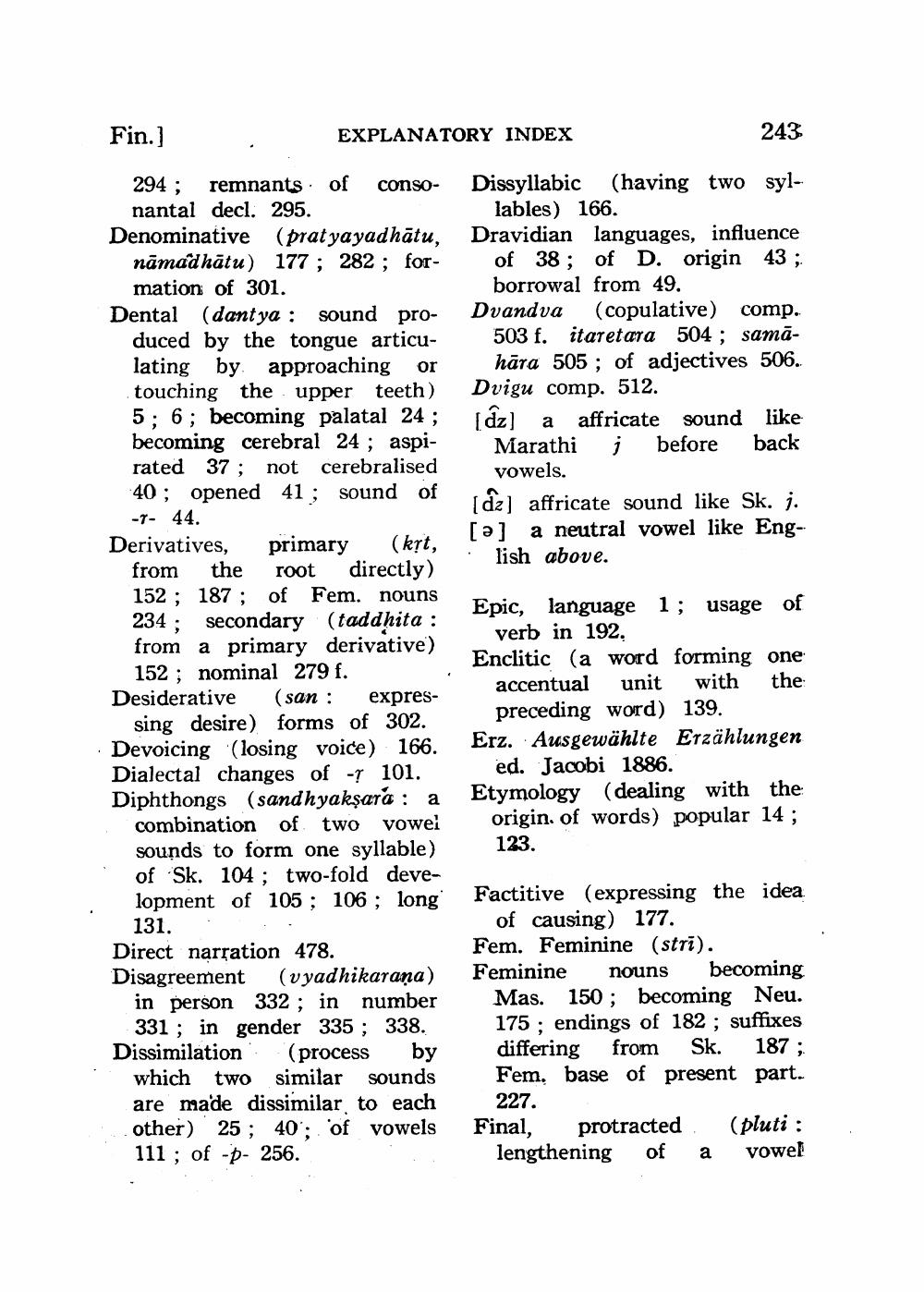________________
Fin.]
EXPLANATORY INDEX
243
Dissyllabic (having two syl
lables) 166. Dravidian languages, influence
of 38; of D. origin 43;
borrowal from 49. Dvandva (copulative) comp.
503 f. itaretara 504 ; sama
hāra 505 ; of adjectives 506. Dvigu comp. 512. Idzl a affricate sound like Marathi j before back
vowels. [dz] affricate sound like Sk. j. [ə] a neutral vowel like Eng:lish above.
294 ; remnants of conso-
nantal decl. 295. Denominative (prat yayadhātu,
nāmadhātu) 177 ; 282; for-
mation of 301. Dental (dant ya : sound pro-
duced by the tongue articulating by approaching or touching the upper teeth) 5: 6 : becoming palatal 24; becoming cerebral 24 ; aspirated 37; not cerebralised 40; opened 41; sound of
-7- 44. Derivatives, primary (kịt,
from the root directly) 152; 187 ; of Fem. nouns 234 ; secondary (taddhita : from a primary derivative)
152 ; nominal 279 f. Desiderative (san: expres
sing desire) forms of 302. Devoicing (losing voice) 166. Dialectal changes of -? 101. Diphthongs (sandhyakşara: a
combination of two vowel sounds to form one syllable) of Sk. 104; two-fold development of 105; 106: long
131. Direct narration 478. Disagreement (vyadhikarana)
in person 332 ; in number
331 ; in gender 335 ; 338. Dissimilation (process by
which two similar sounds are made dissimilar to each other) 25; 40; of vowels 111; of - - 256.
Epic, language 1; usage of
verb in 192. Enclitic (a word forming one
accentual unit with the
preceding word) 139. Erz. Ausgewählte Erzählungen
ed. Jacobi 1886. Etymology (dealing with the
origin. of words) popular 14 ; 123.
Factitive (expressing the idea
of causing) 177. Fem. Feminine (stri). Feminine nouns becoming Mas. 150; becoming Neu. 175 ; endings of 182 ; suffixes differing from Sk. 187 ; Fem. base of present part.
227. Final, protracted (pluti :
lengthening of a vowel




